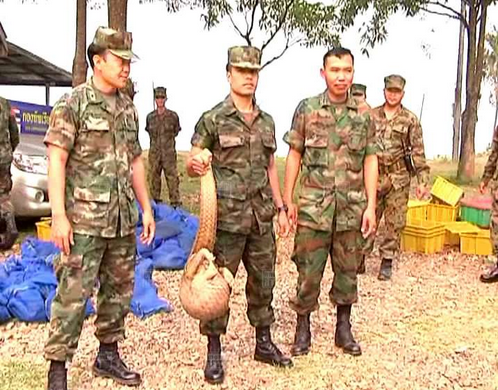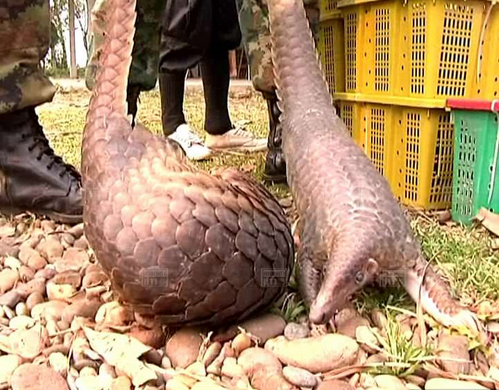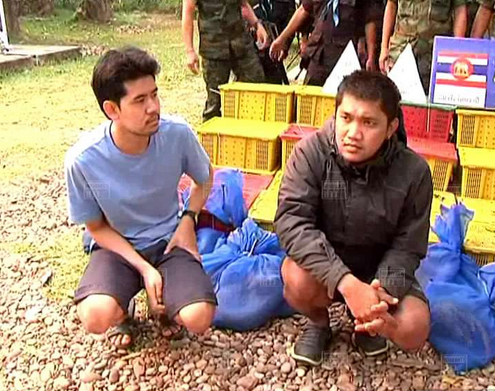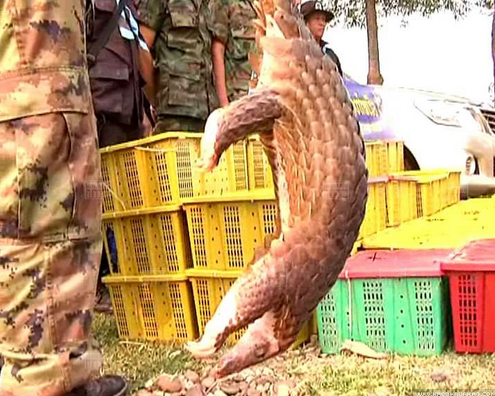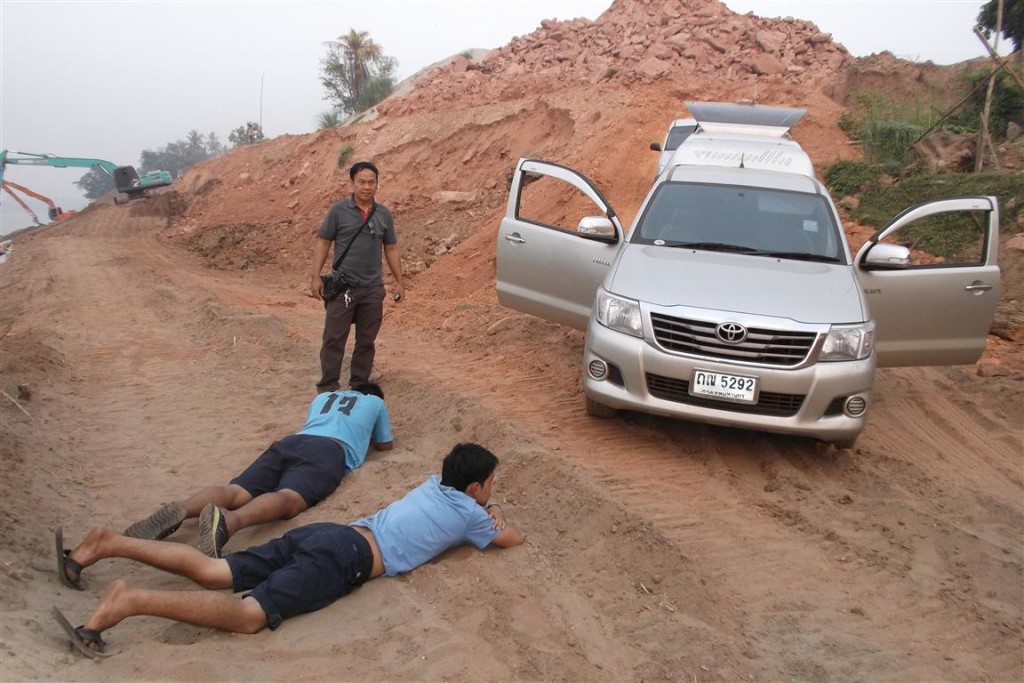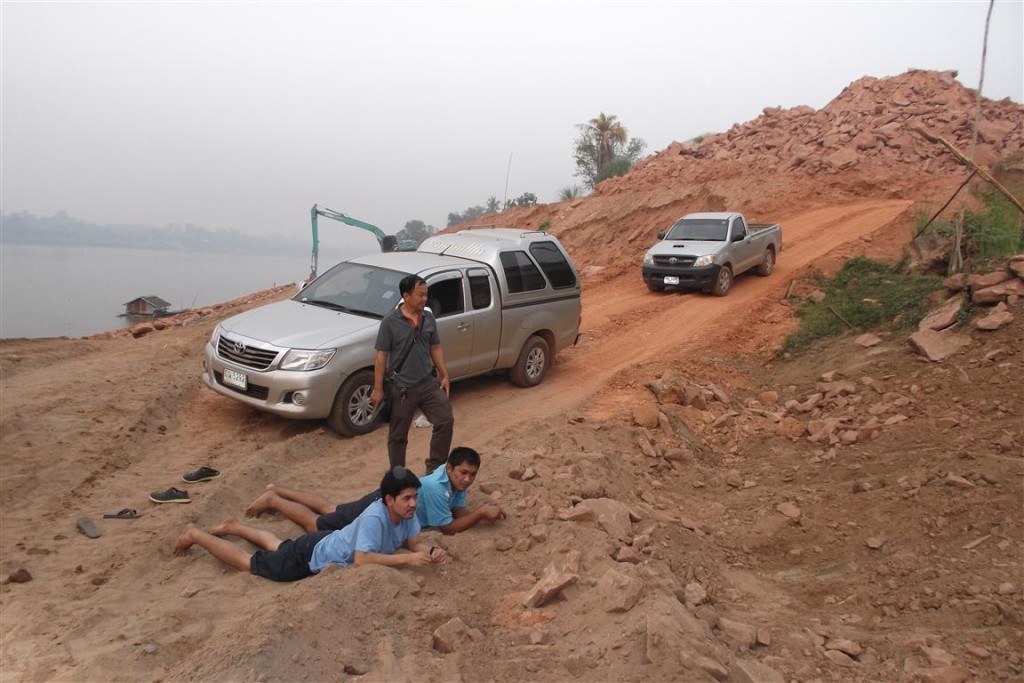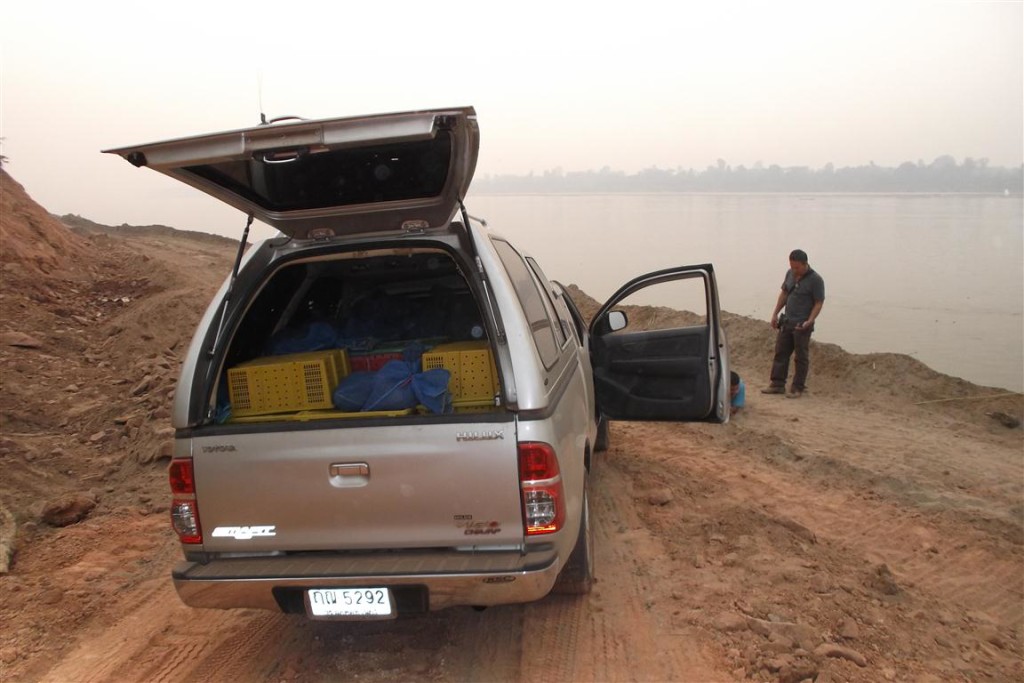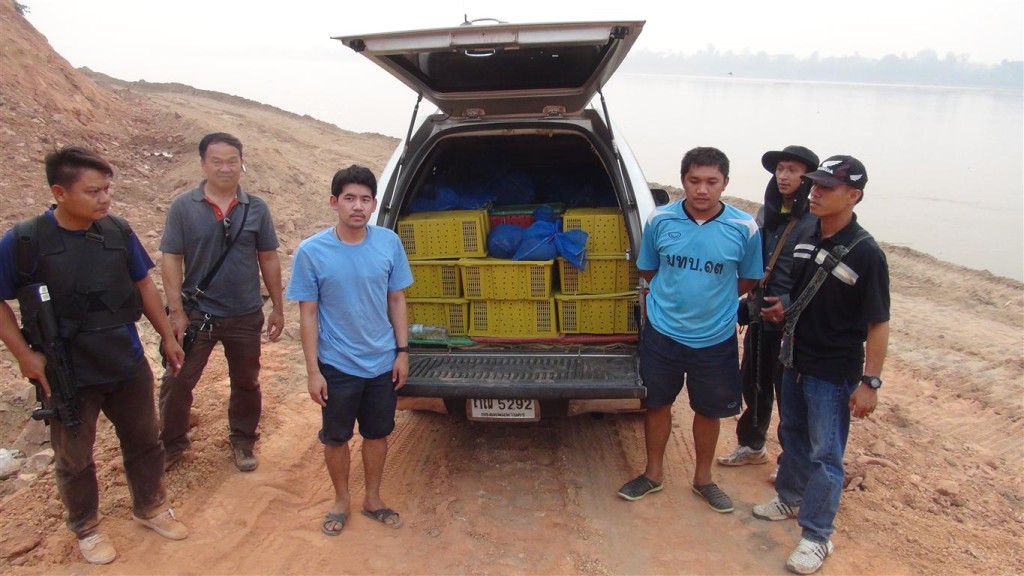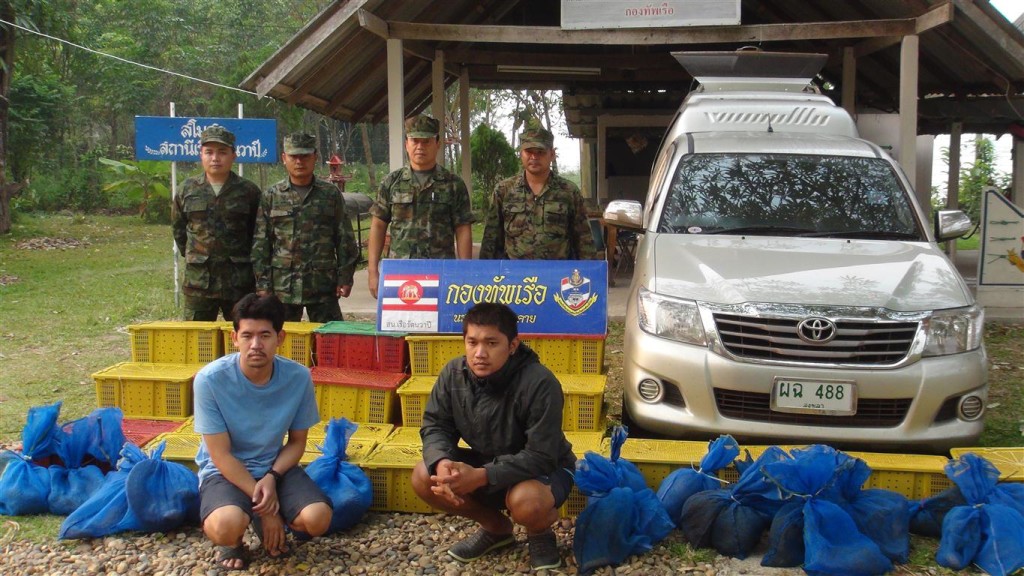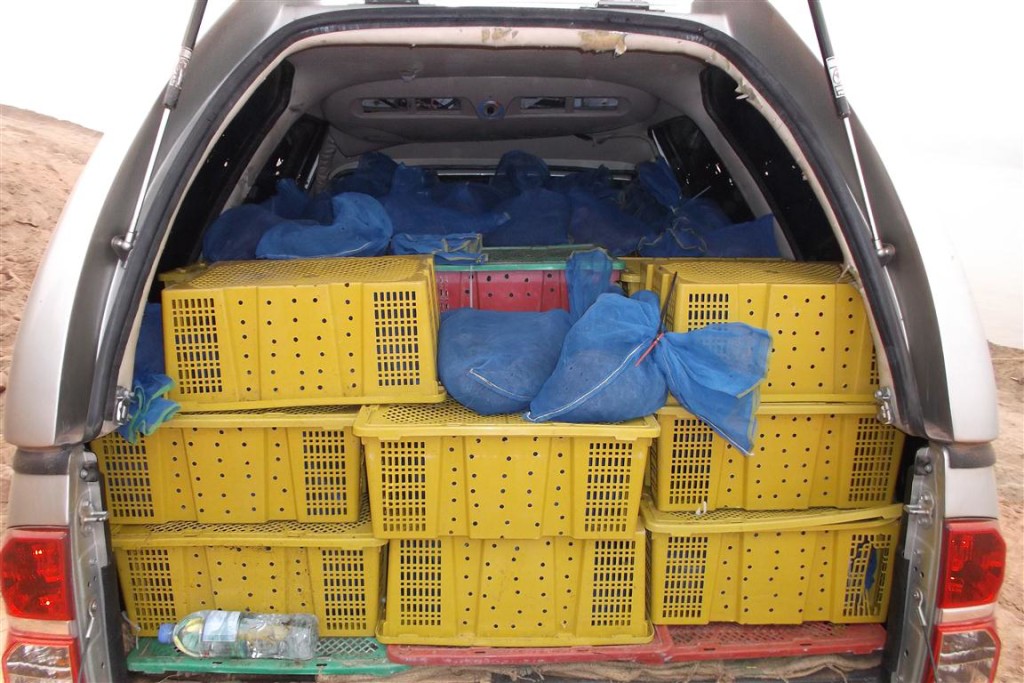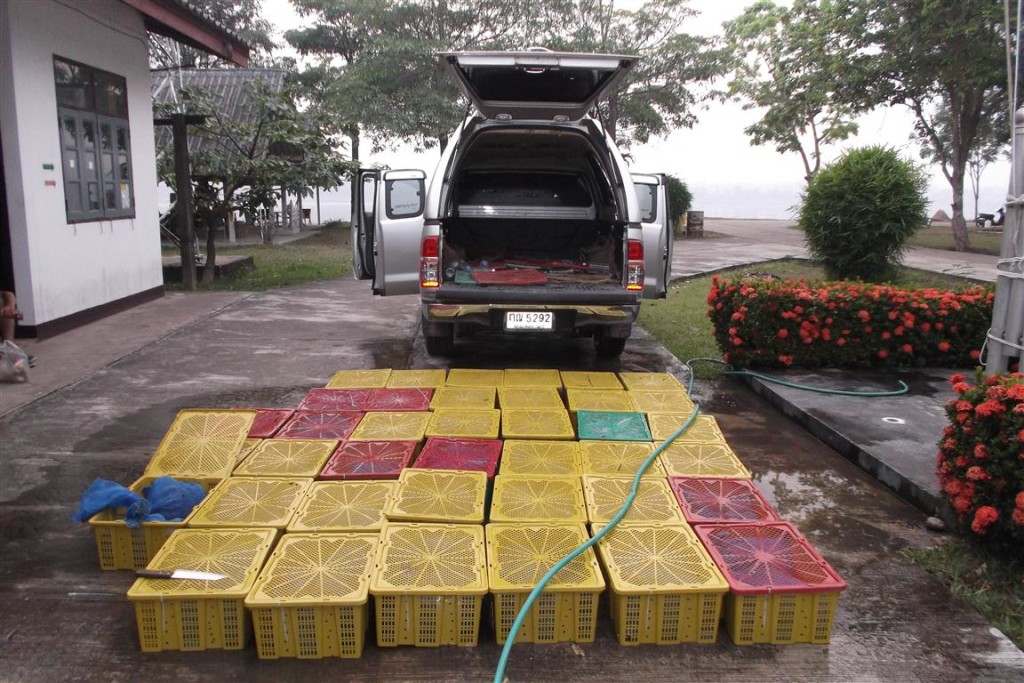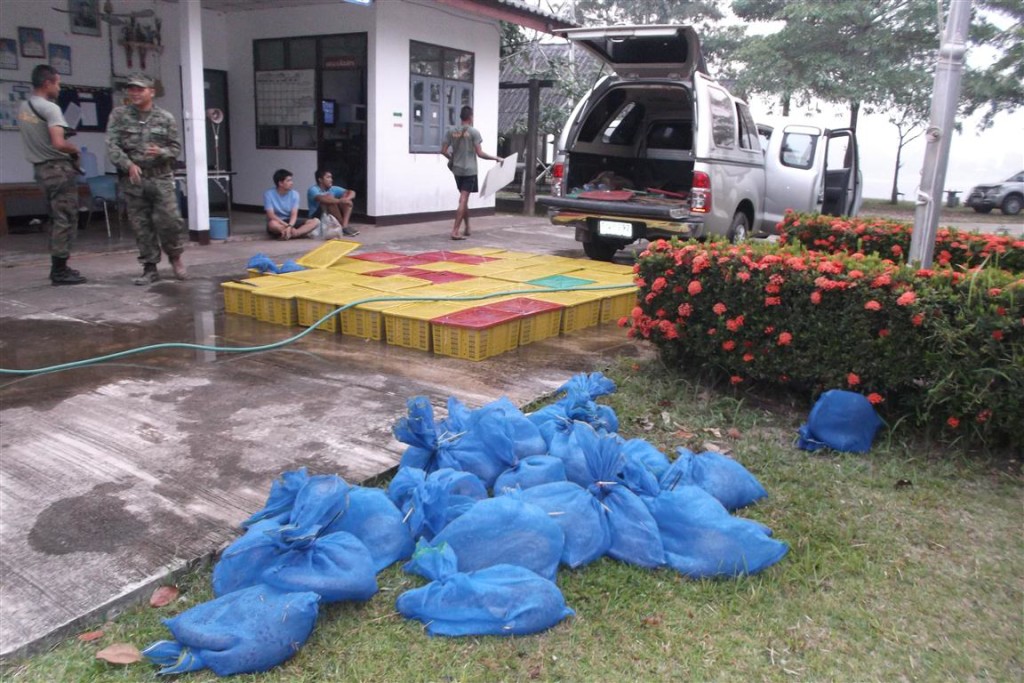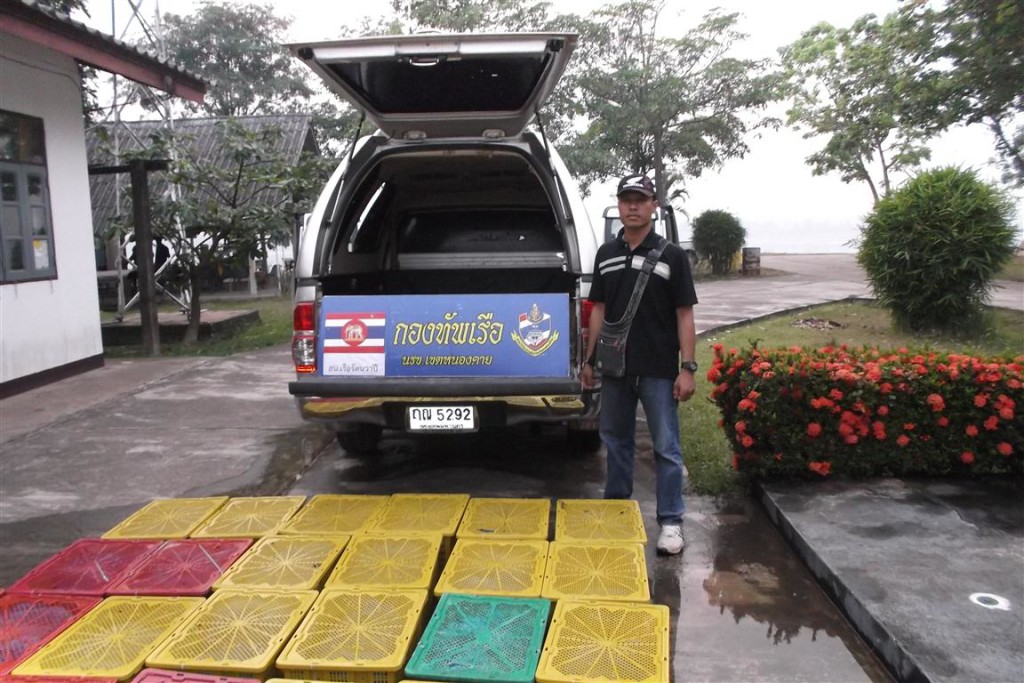From March 10th to 13th, WFFT hosted the WARN Asia Illegal Wildlife Trade Workshop at the I-Love-Phants Lodge in Thailand, bringing together experts and organisations to combat illegal wildlife trade in Asia.
Thai navy catch pangolin traders on Thai-Laos border
107 pangolins confiscated at Thailand-Laos border left to die
Thai Royal Navy officers arrested 2 men from Southern Thailand (Songkhla province) who were unloading 107 pangolins (an endangered and protected wild animal) from their car onto a long tail boat on the Mekong river, dividing Thailand and Laos. The men acted suspicious once they arrived at the village near Nongkhai city and were found to have false number plates on their car. The car originated from Songkhla, but plates on the care belonged to another vehicle registered in Bangkok. Once arrested and interrogated by the Navy marines they confessed they transported the pangolins from the Thai-Malaysian border to Nongkhai.
The Thai navy who monitors the border against the smuggling of wildlife, dogs, people, weapons and drugs told Edwin Wiek who was present at the location that they take the smuggling of dogs and wildlife out of Thailand into Laos very serious as according to their findings the trade has completely gone out of control. Rampant corruption at several government levels and the low priority at political level make the illegal wildlife trade the most lucrative illegal trade ever right now.
The 107 pangolins were handed over to police within 3 hours, but were left uncared for at the police station for over 29 hours, the traders were bailed out long before that. The animals were not picked up by relevant authorities such as Livestock Department or the Department of National Parks (DNP) for two nights, luckily the Thai Navy officers returned to the police station at times to water and cool down the poor animals. Staff of WFFT and dog rescue groups were not allowed to assist with the medical or any other care. Over 40 pangolins died within the 29 hours at the police station. It is until now unclear where the remaining live animals were taken.
Pangolins are illegally traded within South-East Asia as they are in high demand in China. For live animals a price of up to 2500 Baht per kilo is paid, for their scales up to 8,000 baht per kilo is paid within Laos, before taking them to China.
Photos courtesy of Royal Thai Navy / Major Garan

